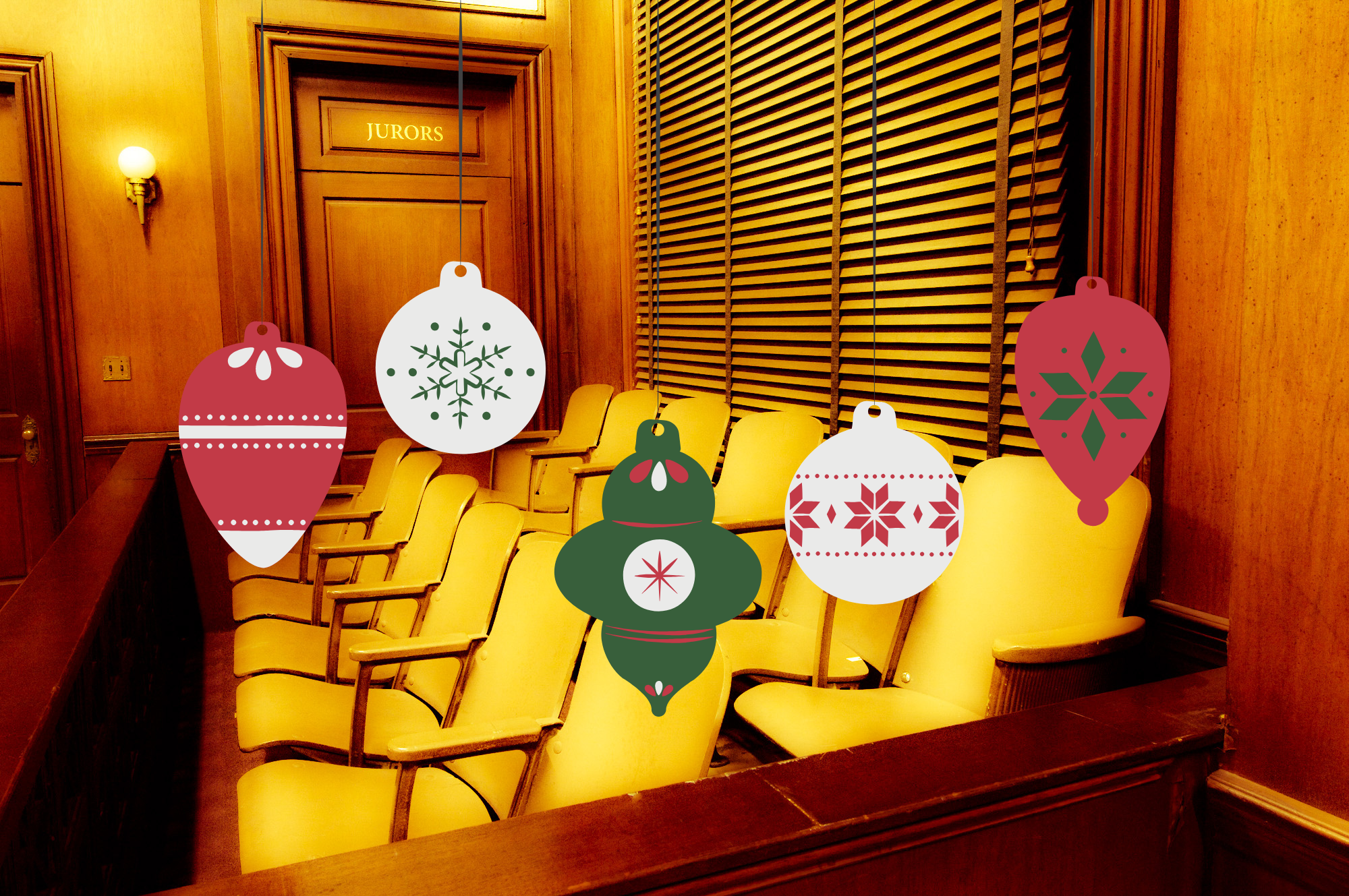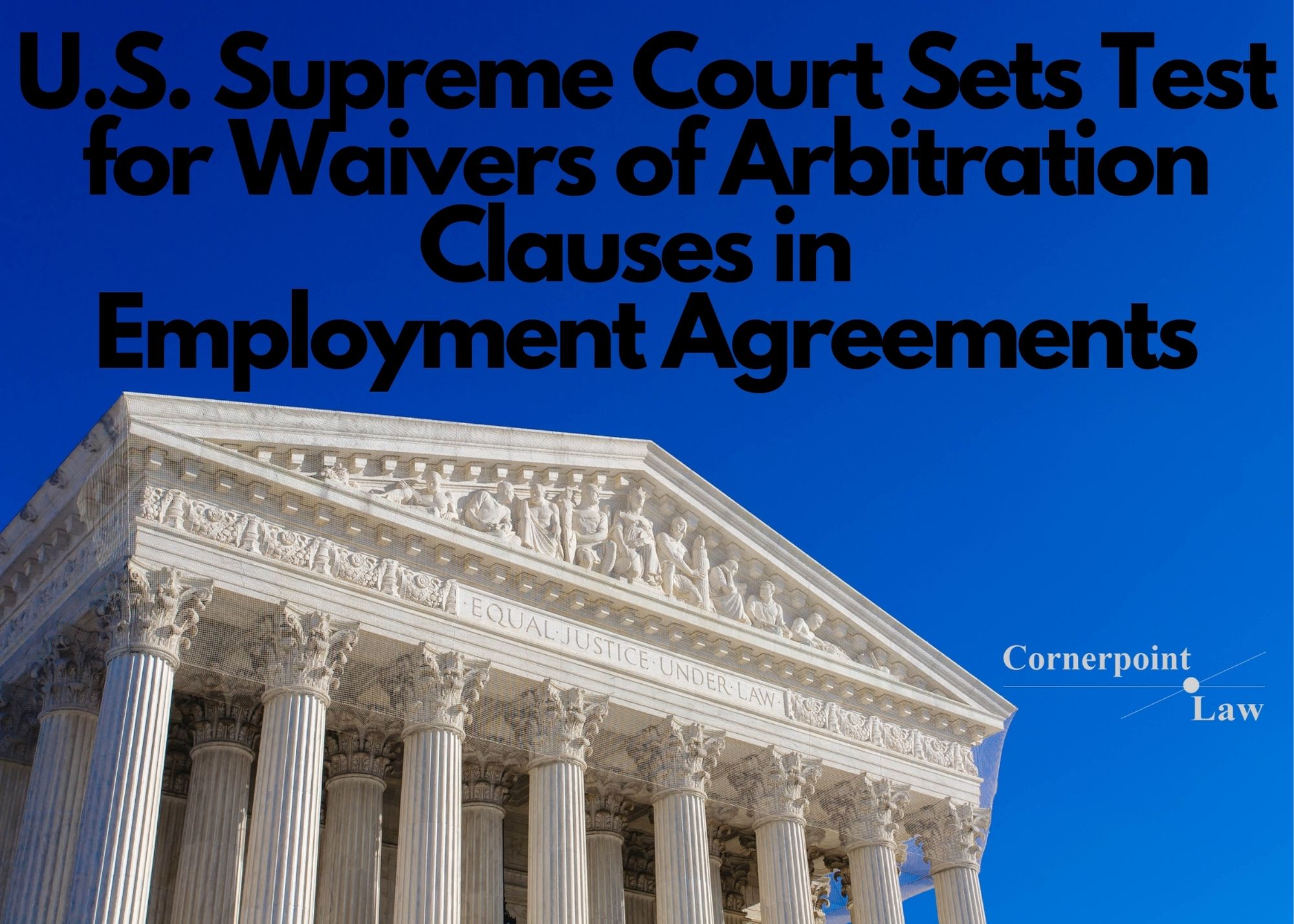The 12 Jury Trials of Washington
December 19, 2019
Unauthorized use and/or duplication of blogposts without express and written permission is strictly prohibited. Excerpts and links may be used, provided that full and clear credit is given, and with appropriate and specific direction to the original content.
The author of this post can be reached by phone at 206-693-2718 or by email.
A Holiday Review of Jury Deliberations and Juror Misconduct
By Stacia Hofmann
In my very first blogpost, way back in 2016, I wrote about the value of using risk management to avoid litigation and the uncertainty of a jury trial.
To be clear: jurors play an indispensable role in the justice system. However, juror preconceptions and other variables that crop up in jury deliberations are oftentimes unknown, uncontrollable, and, frankly, unfair. The vast majority of the time, jurors take their civic responsibilities and duties seriously. It is unusual for juror misconduct to be wholly malicious. More often than not, it comes from a misunderstanding of the jury instructions, individual biases and convictions on what is right and wrong, or not appreciating the significance of the rules of evidence.
It is December, and as there are “12 days of Christmas” and 12 jurors on a jury, I thought I’d use the coincidence to highlight 12 instances of allegations of juror misconduct in real-life civil trial deliberations, as reported in Washington case law. Sure, the rhythm of the jingle is off, but the summary is instructive. As you’ll see from the selections below, what amounts to juror misconduct isn’t always a bright line – it is up to the judge’s discretion. So who was naughty and who was nice?1
Breckenridge v. Valley General Hospital (2003)
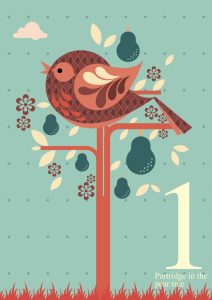 On the first day of deliberations, a juror stated this: his wife had gone to the ER several times with severe headaches and was never given a CT scan.
On the first day of deliberations, a juror stated this: his wife had gone to the ER several times with severe headaches and was never given a CT scan.
In this medical malpractice case, where the plaintiff alleged the ER doctor should have run a CT scan for her severe headache, there was no juror misconduct when the juror shared his wife’s medical history with other jurors. The juror’s experience was used to evaluate the evidence and exemplified “what jurors are expected to do during deliberations.” Additionally, the juror had disclosed his wife’s headaches and emergency room visits to the parties before trial.
Halverson v. Anderson (1973)
 On the second day of deliberations, a juror stated this: pilots and civil surveyors earn $1500 – $2000 per month.
On the second day of deliberations, a juror stated this: pilots and civil surveyors earn $1500 – $2000 per month.
In this personal injury case, the plaintiff, who was under the age of 18, alleged lost earning capacity related to injuries from a car accident. He had ambitions to work as a pilot or civil surveyor. The juror’s contribution about pilot and civil surveyor wages was juror misconduct because the parties had not presented evidence of wages. Rather, the juror had provided “evidence” of damages that was “not subject to objection, cross-examination, explanation or rebuttal.”
Robinson v. Safeway Stores, Inc. (2003)
 On the third day of deliberations, a juror stated this: his opinion that Californians are “sue happy” and “sue anyone they can get money from.”
On the third day of deliberations, a juror stated this: his opinion that Californians are “sue happy” and “sue anyone they can get money from.”
In this personal injury case, the plaintiff was a Californian. The juror had previously stated to the parties that he had no bias against Californians, but had failed to disclose that he had previously been sued by a Californian. There was juror misconduct when he made remarks in deliberations showing bias against Californians.
Lockwood v. A C & S, Inc. (1987)
 On the fourth day of deliberations, a juror stated this: he had looked up the defendants on the stock exchange and they could well afford to pay damages.
On the fourth day of deliberations, a juror stated this: he had looked up the defendants on the stock exchange and they could well afford to pay damages.
In this product liability case against asbestos manufacturers, the juror’s actions and comments were juror misconduct because the evidence did not come from the parties. However, because the judge learned about the comments and instructed the jury to ignore the information before rendering a verdict, there was no prejudicial effect.
Richards v. Overlake Medical Center (1990)
 On the fifth day of deliberations, a juror stated this: her opinion that a mother’s illness explained her child’s illnesses.
On the fifth day of deliberations, a juror stated this: her opinion that a mother’s illness explained her child’s illnesses.
In this medical malpractice case concerning the medical care of a newborn, the juror had disclosed to the parties her medical training and that she was an occupational therapist. Her quasi-medical opinion was based on admitted evidence (the medical records) and was part of the life experience she brought to the jury, so there was no juror misconduct.
Allyn v. Boe (1997)
 On the sixth day of deliberations, a juror stated this: she knew one of the expert witnesses and “he would testify to anything.”
On the sixth day of deliberations, a juror stated this: she knew one of the expert witnesses and “he would testify to anything.”
In this timber trespass case, a real estate agent juror told the parties in advance that she knew the expert real estate assessor, but when asked if this would prevent her from being impartial, she did not reply. The juror’s actions were juror misconduct because her comments in deliberations that he would “testify to anything” were not based on anything that happened in the courtroom.
Fritsch v. JJ Newberry’s, Inc. (1986)
 On the seventh day of deliberations, a juror stated this: he had previously consulted an attorney about his own personal injury and the attorney provided a dollar value of damages for pain and suffering.
On the seventh day of deliberations, a juror stated this: he had previously consulted an attorney about his own personal injury and the attorney provided a dollar value of damages for pain and suffering.
In this personal injury case, a juror disclosed in deliberations that he had sustained a physical injury, consulted an attorney, and was told a reasonable value of his pain and suffering was $1000 for that month. The jury used that figure in calculating the value of the plaintiff’s pain and suffering. The juror’s actions were juror misconduct because the information was extraneous evidence and materially affected the verdict.
Cutuk v. Bray (2013)
 On the eighth day of deliberations, a juror stated this: the definition of “negligence” after looking it up in a dictionary.
On the eighth day of deliberations, a juror stated this: the definition of “negligence” after looking it up in a dictionary.
In this medical malpractice case, the juror’s actions were juror misconduct, as the information did not come from the court, and the dictionary definition of negligence differs substantially from the legal standard of medical negligence.
Garcia v. Strong Trucking, Inc. (2012)
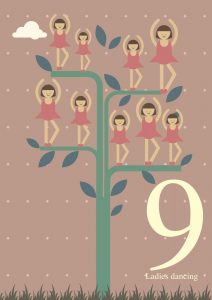 On the ninth day of deliberations a juror stated this: military members receive a death gratuity of $100,000.
On the ninth day of deliberations a juror stated this: military members receive a death gratuity of $100,000.
In this wrongful death case, a juror disclosed in deliberations his understanding of the death benefit for a U.S. soldier’s family. The juror’s actions were juror misconduct because the information was extrinsic evidence, not opinion, and the jury could have used it to weigh the “value” of a life.
Naness v. Canterbury Shores Apartment Owners Association (2010)
 On the tenth day of deliberations, two jurors stated this: the residential real estate deal at issue could never had closed by the contracted closing date.
On the tenth day of deliberations, two jurors stated this: the residential real estate deal at issue could never had closed by the contracted closing date.
In this condominium association case, the plaintiff alleged his HOA’s issuance of an inaccurate resale certificate caused his sale to fall through. The two jurors, who claimed real estate experience, said that the sale would not have closed in the nine days provided for in the contract regardless of the resale certificate. The jurors’ statements were not juror misconduct because there was evidence at trial about the closing deadline, so the opinions were deducted from the evidence.
Sheffield v. Goodyear Tire & Rubber Company (2009)
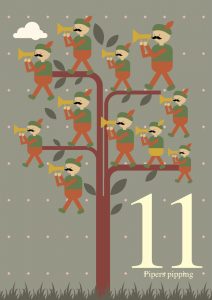 On the eleventh day of deliberations, a juror stated this: he had looked up Goodyear’s financials on the internet and they showed earnings of about $200,000,000.
On the eleventh day of deliberations, a juror stated this: he had looked up Goodyear’s financials on the internet and they showed earnings of about $200,000,000.
In this employment discrimination case, a juror disclosed in deliberations that he had researched the defendant’s financials online. The financial figures were introduced as a means to calculate the plaintiff’s emotional distress damages. The juror’s actions were juror misconduct because the information was irrelevant extrinsic evidence.
Figueroa v. Highline Medical Center (2013)
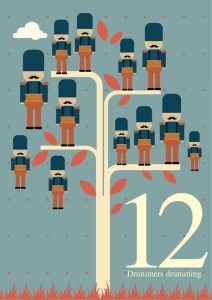 On the twelfth day of deliberations, a juror stated this on Facebook: updates of her experience as a juror.
On the twelfth day of deliberations, a juror stated this on Facebook: updates of her experience as a juror.
In this medical malpractice case, the juror posted Facebook updates of her time as a juror. For example, she posted, “Very difficult to listen to a translator during the questioning. I can pick out some words.” The juror’s actions were “inappropriate,” but because they did not affect deliberations, the postings were not prejudicial. The court didn’t reach a definitive conclusion as to whether the postings were juror misconduct.
So there you have it! 12 Washington trials where jury deliberations did not go as planned – at least as hoped for by the affronted parties.
The big takeaway: a jury trial is a business’s ultimate delegation of decision-making. The surest way to reduce the uncertainty of a jury verdict is to never be in a position where one is needed.
This blog is for informational purposes only and is not guaranteed to be correct, complete, or current. The statements on this blog are not intended to be legal advice, should not be relied upon as legal advice, and do not create an attorney-client relationship. If you have a legal question, have filed or are considering filing a lawsuit, have been sued, or have been charged with a crime, you should consult an attorney. Furthermore, statements within original blogpost articles constitute Stacia Hofmann’s opinion, and should not be construed as the opinion of any other person. Judges and other attorneys may disagree with her opinion, and laws change frequently. Neither Stacia Hofmann nor Cornerpoint Law is responsible for the content of any comments posted by visitors. Responsibility for the content of comments belongs to the commenter alone.
- Case citations: (1) 150 Wn.2d 197, 75 P.3d 944 (2) 82 Wn.2d 746, 513 P.2d 827 (3) 113 Wn.2d 154, 776 P.2d 676 (4) 109 Wn.2d 235, 744 P.2d 605 (5) 59 Wn. App. 266, 796 P.2d 737 (6) 87 Wn. App. 722, 943 P.2d 364 (7) 43 Wn. App. 904, 720 P.2d 845 (8) Unpublished No. 68406-0-I (9) Unpublished No. 66743-2-I (10) Unpublished No. 63091-1-I (11) Unpublished No. 61238-7-I (12) Unpublished No. 68272-5-I ↩

